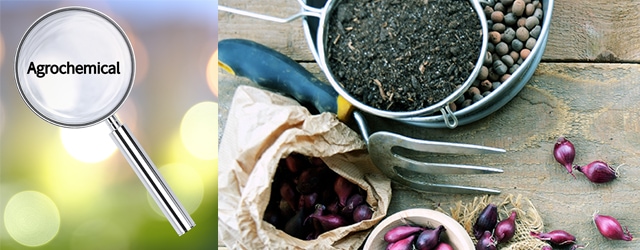A series of proposed megamergers in the global agrochemicals and seed industries could create a pricing monopoly in the farm-supply industry

A series of proposed megamergers in the global agrochemicals and seed industries,capped by Bayer’s record $66 billion cash bid for Monsanto,could create a pricing monopoly in the farm-supply industry and threaten the global food supply, opponents claim.
In the United States, Republican senator Charles Grassley, from the farm state of Iowa, has introduced legislation that would add the US Department of Agriculture permanently to the Committee on Foreign Investment in the US (CFIUS), which has the power to block deals on the basis of national security. He says this change would “ensure that the state of the nation’s food supply is appropriately taken into account when reviewing these mergers.”
Grassley is chairman of the Senate Judiciary Committee, which has jurisdiction over antitrust policy. He called a hearing in September to question seed-industry executives about declining competition and high prices for genetically modified seeds, which are squeezing farmers’ income at a time when crop prices are depressed. Grassley has been an outspoken critic of China National Chemical’s $43 billion bid for Swiss seed and pesticide maker Syngenta, which is the biggest seller of pesticides in the US. The antitrust review of that proposed merger is continuing, although CFIUS has given its approval to the deal.
“It is clear that China is looking at purchasing companies with food-production expertise as part of a long-term strategic plan and a component of their national security,” Grassley says. “We need to be looking at these mergers in the same way. The fact that a state-owned enterprise may have yet another stake in US agriculture is alarming.”
Meanwhile, the European Commission is investigating the proposed merger of Dow Chemical and DuPont to determine if it would reduce competition in the rapidly consolidating crop-protection industry. The combined DowDuPont, worth $130 billion, plans to split into three parts, including one exclusively comprising the agricultural chemicals and seeds business.
Six companies dominate agrochemicals, with three (Monsanto, DuPont and Dow) in the US and three (Syngenta, Bayer and BASF) based in Europe, according to Fitch Ratings. “Consolidation has been driving the industry, with these six acquiring more than 200 companies since the mid-1990s,” Fitch says.
Valuations of fertilizer and agrochemical companies have declined following four years of bumper crops and high food stocks, says Monica Bonar, senior director at Fitch. The merger of Canadian fertilizer giants Potash Corporation of Saskatchewan and Agrium of Calgary, to create a company worth some $36 billion, will create synergies in their distribution channel and improve market reach, Bonar says.
Agrium’s growth has been driven by the acquisition of large farm retail chains, and earnings in this business have been more stable relative to the wholesale fertilizer business, Fitch says. “The addition of strong retail operations provides timely market intelligence and the ability to optimize working capital throughout the value chain,” Bonar says.
The Potash-Agrium deal is likely to be scrutinized by antitrust regulators, since the combined company would control 60% or more of the North American capacity for the key fertilizer ingredient.
Bayer’s acquisition of Monsanto, the leading developer of genetically modified seeds, could be a tough sell in Europe, where many countries ban the cultivation of such crops.



